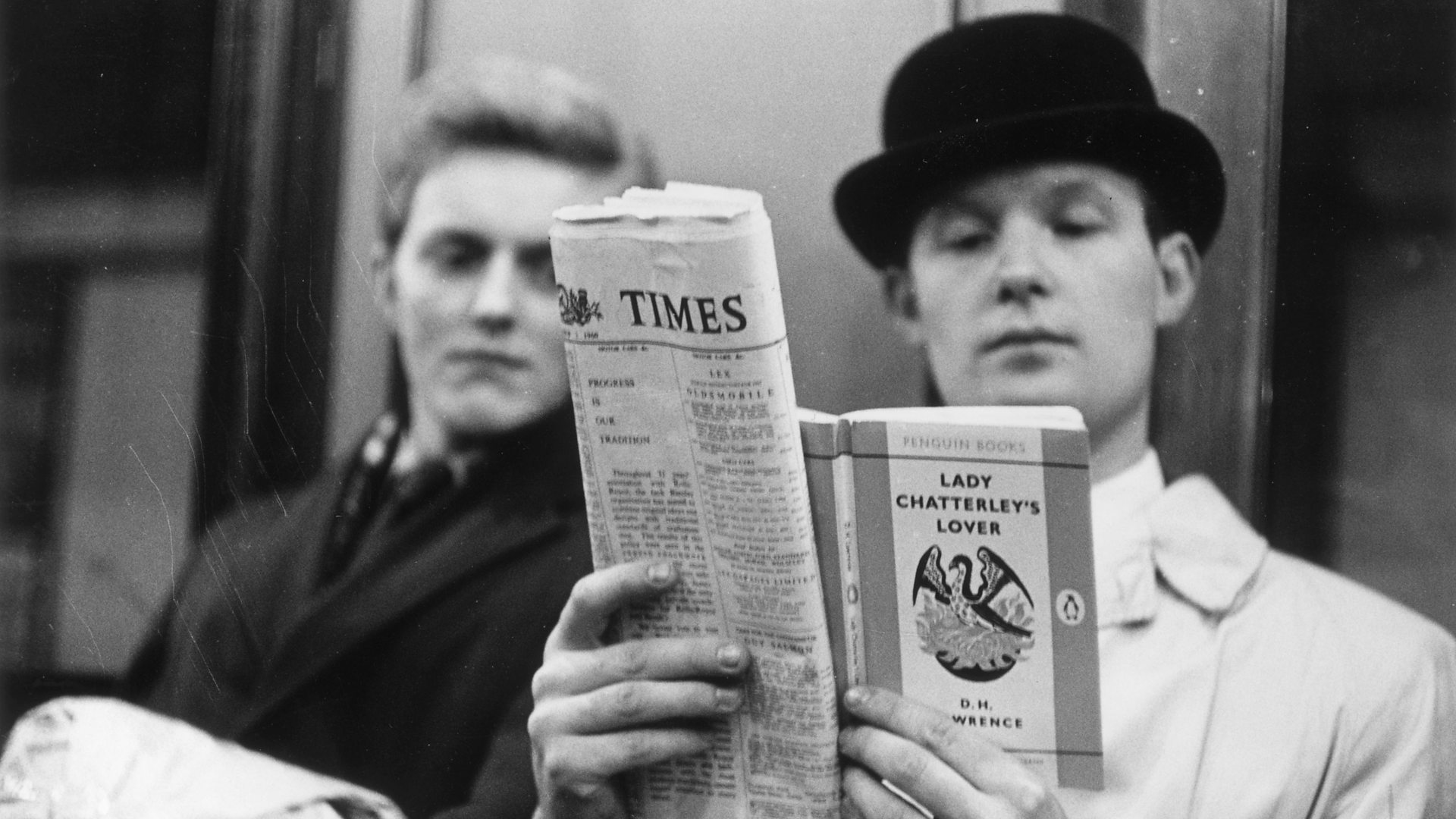
- Florence, 1928. English writer David Herbert Lawrence (1885-1930) wrote several versions of the novel Lady Chatterley’s Lover. The novel explicitly told the sexual relationship between a high-class woman and a low-class man, and the author was aware of the difficulties he would have in publishing his work in the usual market.

Herbert made a private edition of 2,000 copies of his novel to distribute it to his English subscribers. In 1932, two years after the death of
D. H. Lawrence, in England, they published an adapted version, permitted but highly censored, that would not have been accepted by the author if it still existed, as the journalist Gerald Gould then wrote, “because they have taken away from him passages of enormous psychological importance for the writer.”
In 1959, the Law of Obscene Publications entered into force in England. The new law penalized with prison the publication of works that were considered lawful, but it also included the condition to avoid the punishment of the work being a literary value. Using the loophole, Penguin's editorial then made a risky bet: to publish the third version of Lady Chatterley's lover, which the author considered more round. In addition to the prison sentence, the game was full of money, as the editors prepared 200,000 copies – in an atypical press after the refusal of the printing press he used – and hired a large group of lawyers. According to various sources, editor Allan Lane provoked the trial when she went directly to the prosecution with several copies. Although Penguin has not confirmed this detail, it is clear that they were and succeeded, as the publication was judged in 1960.
According to sources, editor Allan Lane provoked the trial when he went directly to the prosecution for several copies.
Waiting for the ruling, they had at least one marketing campaign, because the scandal was in every newspaper and every mouthpiece. At one point, Attorney General Mervyn Griffith-Jones asked the jury members, “Would you like to read this book your wives or wonderful?” And in the end, they answered him as he didn't want or expected, because on November 2, 1960, the editors were declared innocent. In one day the 200,000 copies were sold out, which in the next three months will have sold three million books.
The editorial benefited financially from this move, but cultural performance was more notable, according to attorney Geoffrey Robertson, “There is no ruling that has had such a social impact on British history.” From then on, censorship became very calm and, in keeping with the prosecutor’s nightmare, wives and miracles had the opportunity to read works of great value that were previously considered lustful.